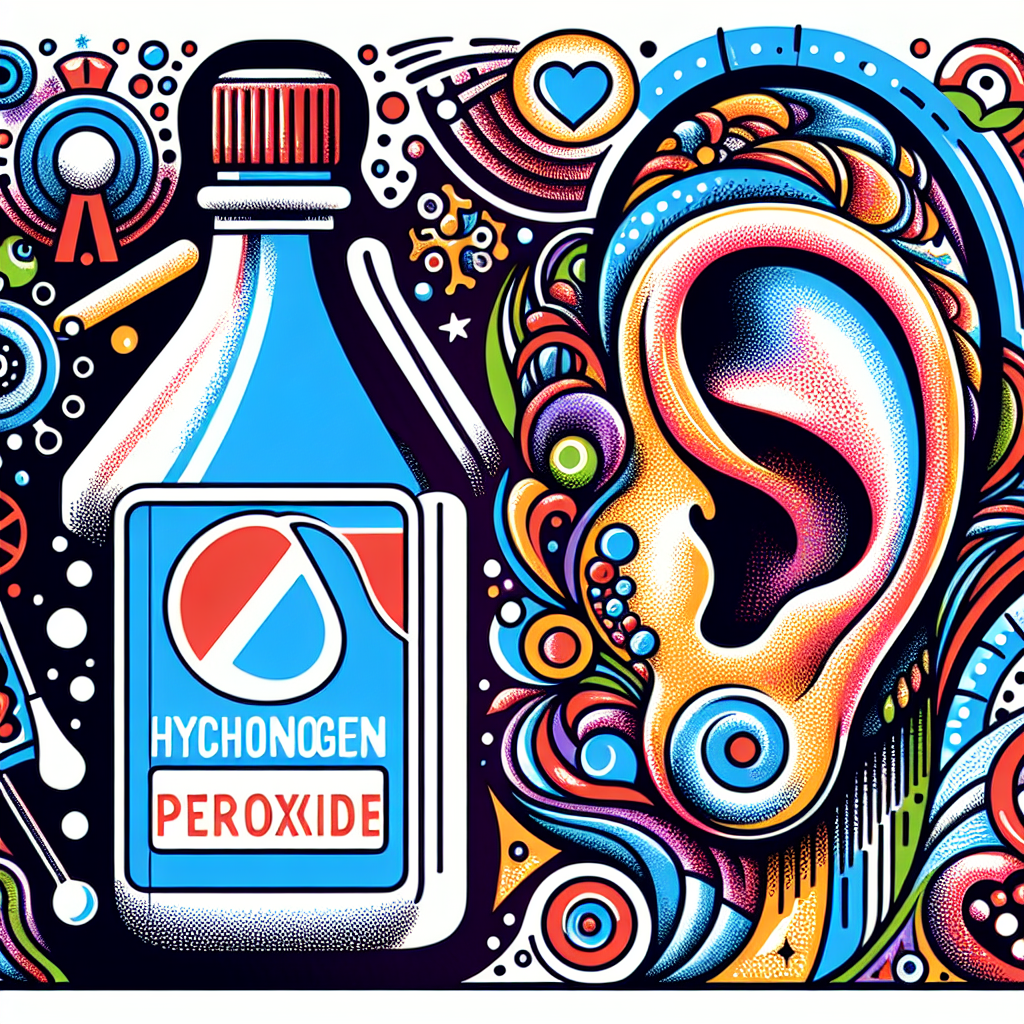Introduction
In the quest for pristine ear hygiene, many people turn to household remedies. One common choice is hydrogen peroxide. But is this bubbly solution a friend or foe to our delicate ears? Join us as we delve into the world of ear care, exploring whether hydrogen peroxide is damaging to ears and uncovering safer alternatives.
- The Role of Ear Wax
- Hydrogen Peroxide: Friend or Foe?
- Safe Alternatives for Ear Cleaning
- Key Takeaways
- FAQ
- Conclusion
The Role of Ear Wax
Ear wax, or cerumen, often carries a bad rap. Yet, it serves a crucial function. This natural substance acts as a protective barrier, trapping dust and debris while moisturizing the ear canal to prevent dryness and irritation. Think of ear wax as the ear’s own security guard, tirelessly working to keep invaders at bay.
Hydrogen Peroxide: Friend or Foe?
The Science Behind Hydrogen Peroxide in Ear Cleaning
Hydrogen peroxide has been used for decades as a go-to remedy for ear wax removal. Its bubbling action can indeed help loosen and dissolve ear wax, making it easier to remove. But here’s where the plot thickens—while hydrogen peroxide can be effective, it doesn’t come without risks.
Potential Risks and Side Effects
Using hydrogen peroxide inappropriately can lead to a host of problems. From minor irritations to more severe complications like ear infections or even perforated eardrums, the risks are real. The delicate skin of the ear canal can be easily damaged by the chemical reaction caused by hydrogen peroxide, leading to discomfort and potential hearing issues.
For those experiencing persistent ear wax build-up or discomfort, seeking professional ear wax removal services could be a safer option.
Safe Alternatives for Ear Cleaning
Professional Ear Wax Removal
If you’re looking for a safe and effective way to clean your ears, consider visiting a healthcare professional. Services like those offered at injury treatment centers in Downers Grove provide expert care, ensuring your ears are treated gently and thoroughly.
Over-the-Counter Ear Drops
There are numerous over-the-counter ear drops designed specifically for ear wax removal. These products are generally safer than using hydrogen peroxide and can effectively soften ear wax, making it easier to clean out.
Natural Remedies
For those who prefer natural remedies, options like olive oil or saline solutions can be gentle yet effective. These substances help soften ear wax without the harsh effects that can come with hydrogen peroxide use.
Key Takeaways
- Ear wax plays an essential role in keeping your ears healthy.
- While hydrogen peroxide can aid in ear wax removal, it poses significant risks if not used correctly.
- Opt for safer alternatives such as professional services or specially formulated ear drops.
FAQ
Is it safe to use hydrogen peroxide in my ears?
While it can be effective, improper use of hydrogen peroxide can cause irritation and damage to the ear canal. It’s best to consult with a healthcare provider for safe ear cleaning methods.
How often should I clean my ears?
Generally, ears are self-cleaning and don’t need frequent cleaning. However, if you experience discomfort or excessive build-up, seek professional advice.
What are the signs of ear wax build-up?
Symptoms include earache, hearing loss, tinnitus (ringing in the ears), and dizziness. If you experience any of these, consult with a healthcare professional.
Conclusion
Caring for your ears is essential for maintaining overall health and well-being. While hydrogen peroxide has its place in ear wax removal, its risks often outweigh the benefits. By choosing safer alternatives and seeking professional care when needed, you can ensure your ears stay healthy without unnecessary damage.
If you’re experiencing persistent issues, consider exploring professional services like ear wax removal services. Your ears will thank you!
For more information on related topics, check out our guides on COVID testing in Downers Grove and general medical evaluations in Hinsdale.




